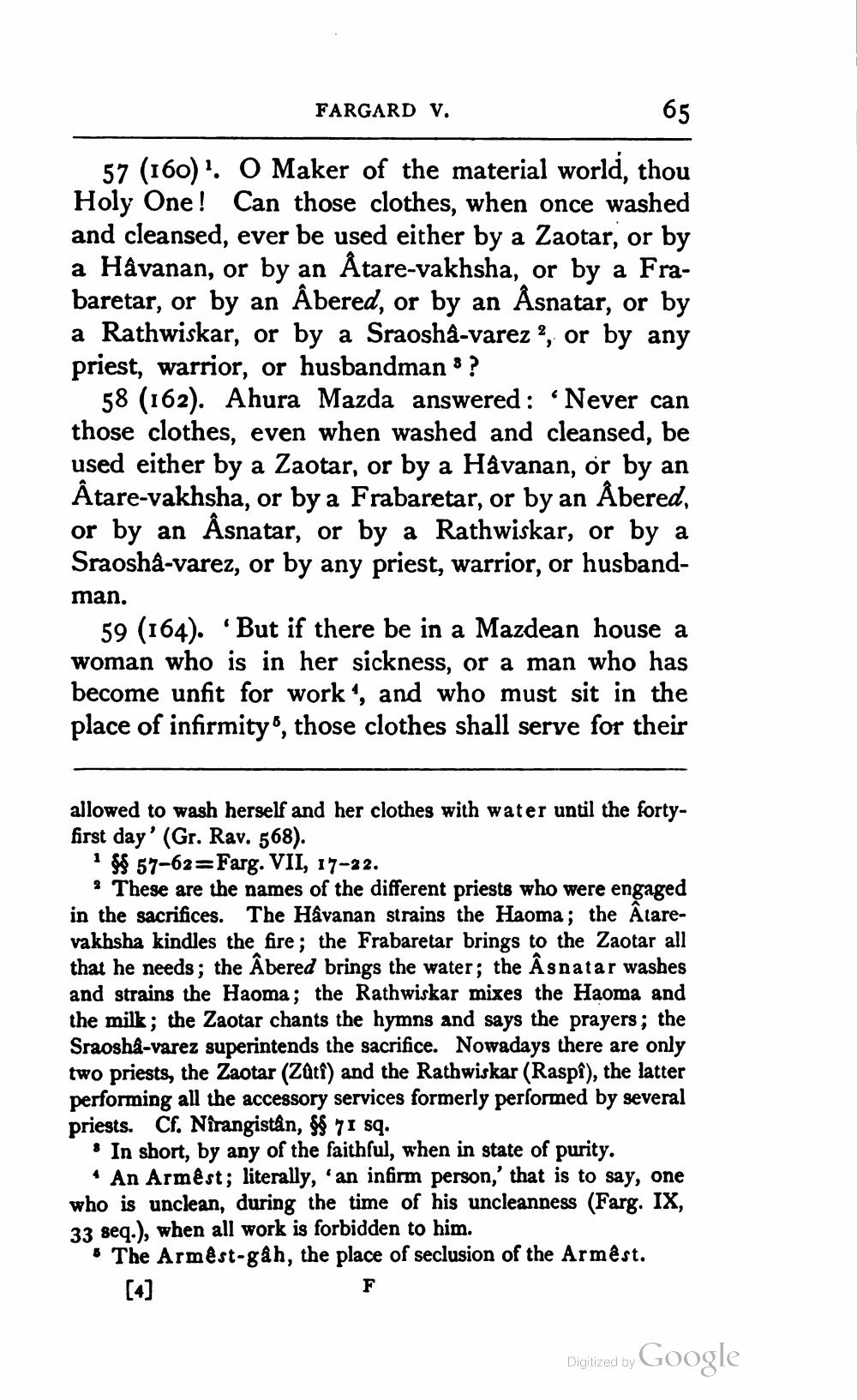________________
FARGARD V.
65 57 (160)'. O Maker of the material world, thou Holy One! Can those clothes, when once washed and cleansed, ever be used either by a Zaotar, or by a Havanan, or by an Åtare-vakhsha, or by a Frabaretar, or by an Âbered, or by an Åsnatar, or by a Rathwiskar, or by a Sraoshâ-varez ?, or by any priest, warrior, or husbandman : ?
58 (162). Ahura Mazda answered: Never can those clothes, even when washed and cleansed, be used either by a Zaotar, or by a Havanan, or by an Atare-vakhsha, or by a Frabaretar, or by an Åbered, or by an Asnatar, or by a Rathwiskar, or by a Sraoshâ-varez, or by any priest, warrior, or husbandman.
59 (164). But if there be in a Mazdean house a woman who is in her sickness, or a man who has become unfit for work, and who must sit in the place of infirmity, those clothes shall serve for their
allowed to wash herself and her clothes with water until the fortyfirst day' (Gr. Rav. 568).
* $$ 57-62=Farg. VII, 17-92.
* These are the names of the different priests who were engaged in the sacrifices. The Havanan strains the Haoma; the Alarevakbsha kindles the fire; the Frabaretar brings to the Zaotar all that he needs; the Abered brings the water; the Asnatar washes and strains the Haoma; the Rathwiskar mixes the Haoma and the milk; the Zaotar chants the hymns and says the prayers; the Sraoshå-varez superintends the sacrifice. Nowadays there are only two priests, the Zaotar (Zoti) and the Rathwiskar (Raspî), the latter performing all the accessory services formerly performed by several priests. Cf. Nirangistân, $$ 71 sq.
• In short, by any of the faithful, when in state of purity.
• An Armêst; literally, an infirm person,' that is to say, one who is unclean, during the time of his uncleanness (Farg. IX, 33 seq.), when all work is forbidden to him.
* The Armêst-gåh, the place of seclusion of the Armêst.
Digitized by Google




